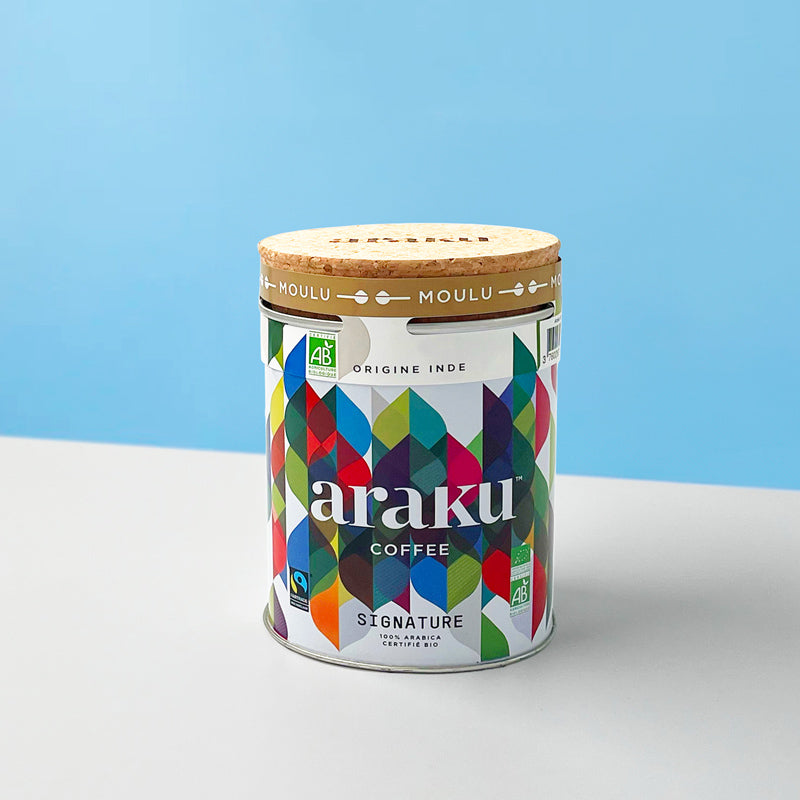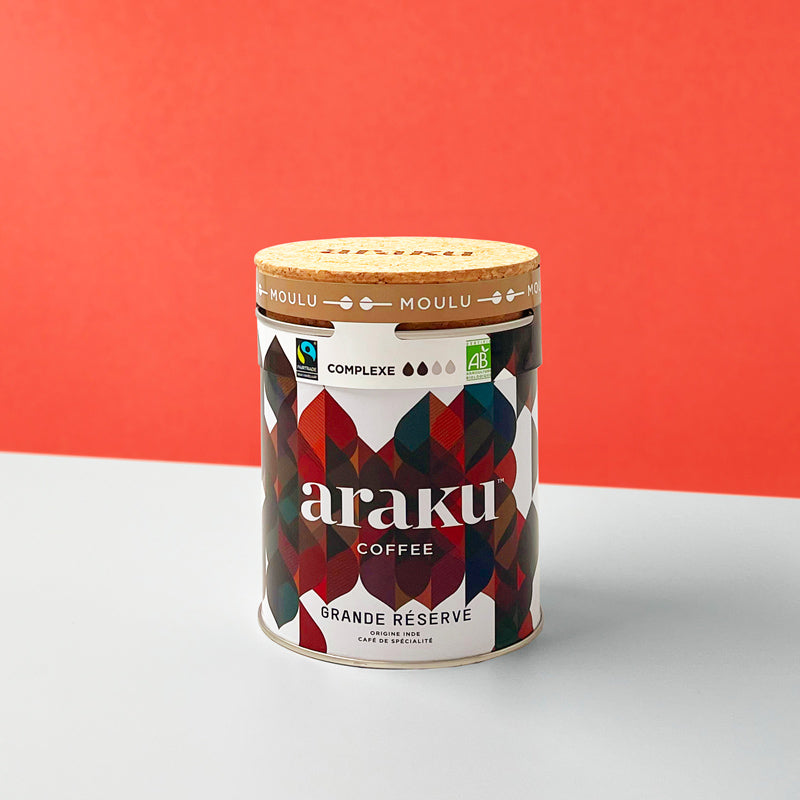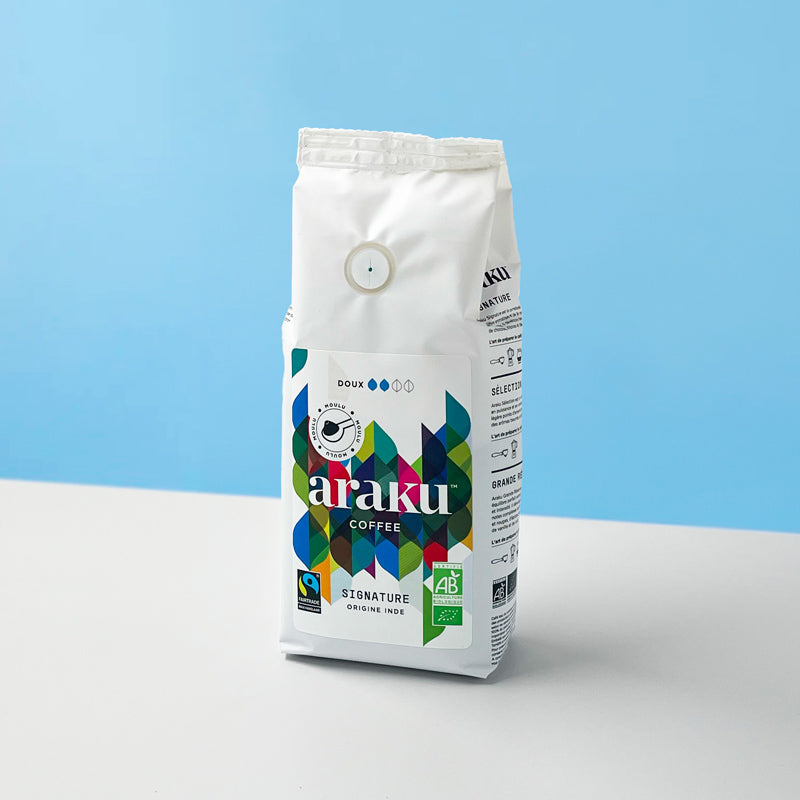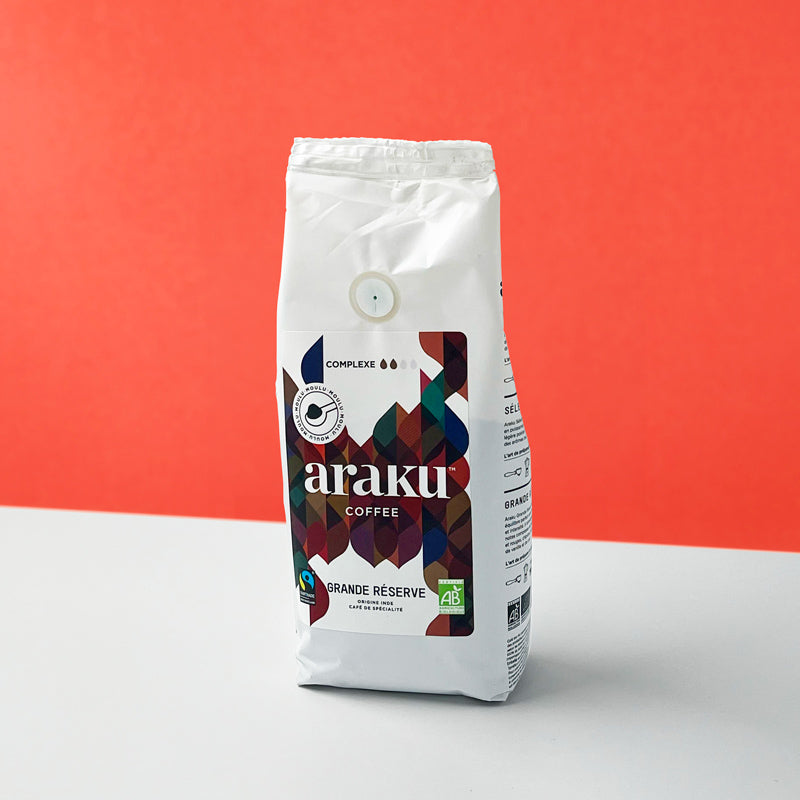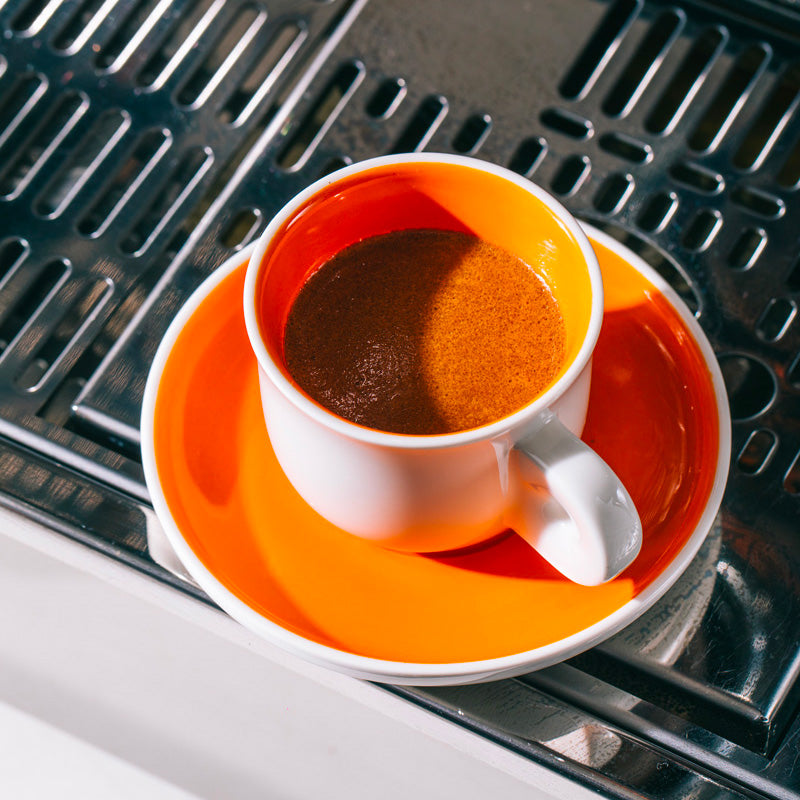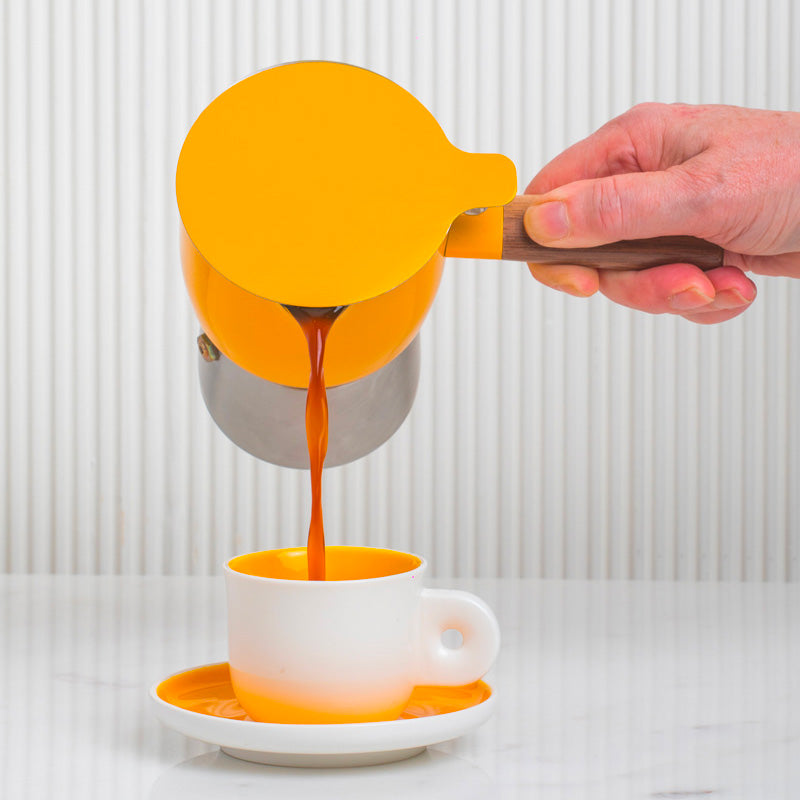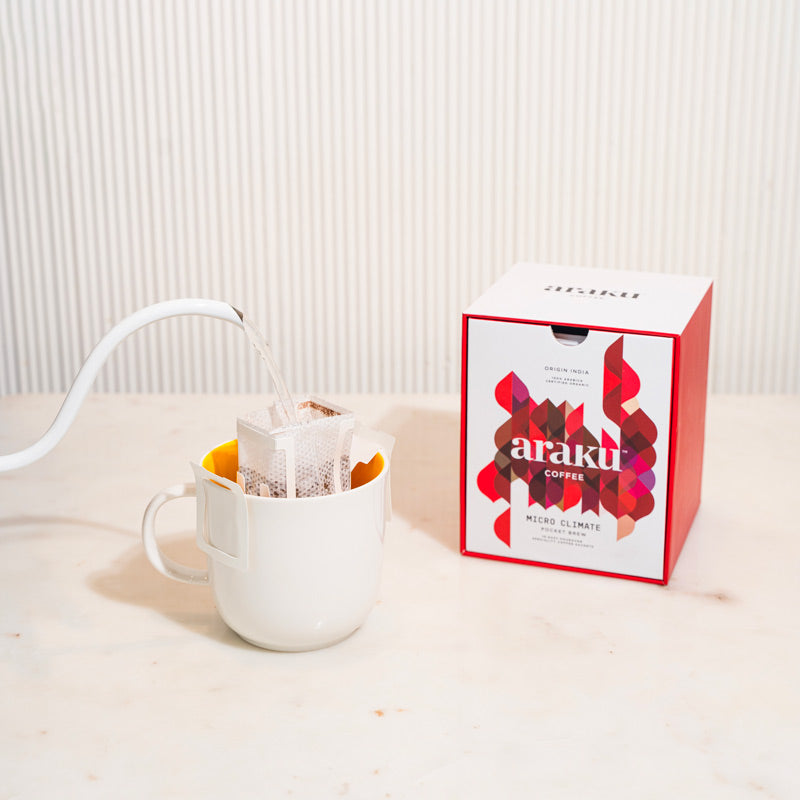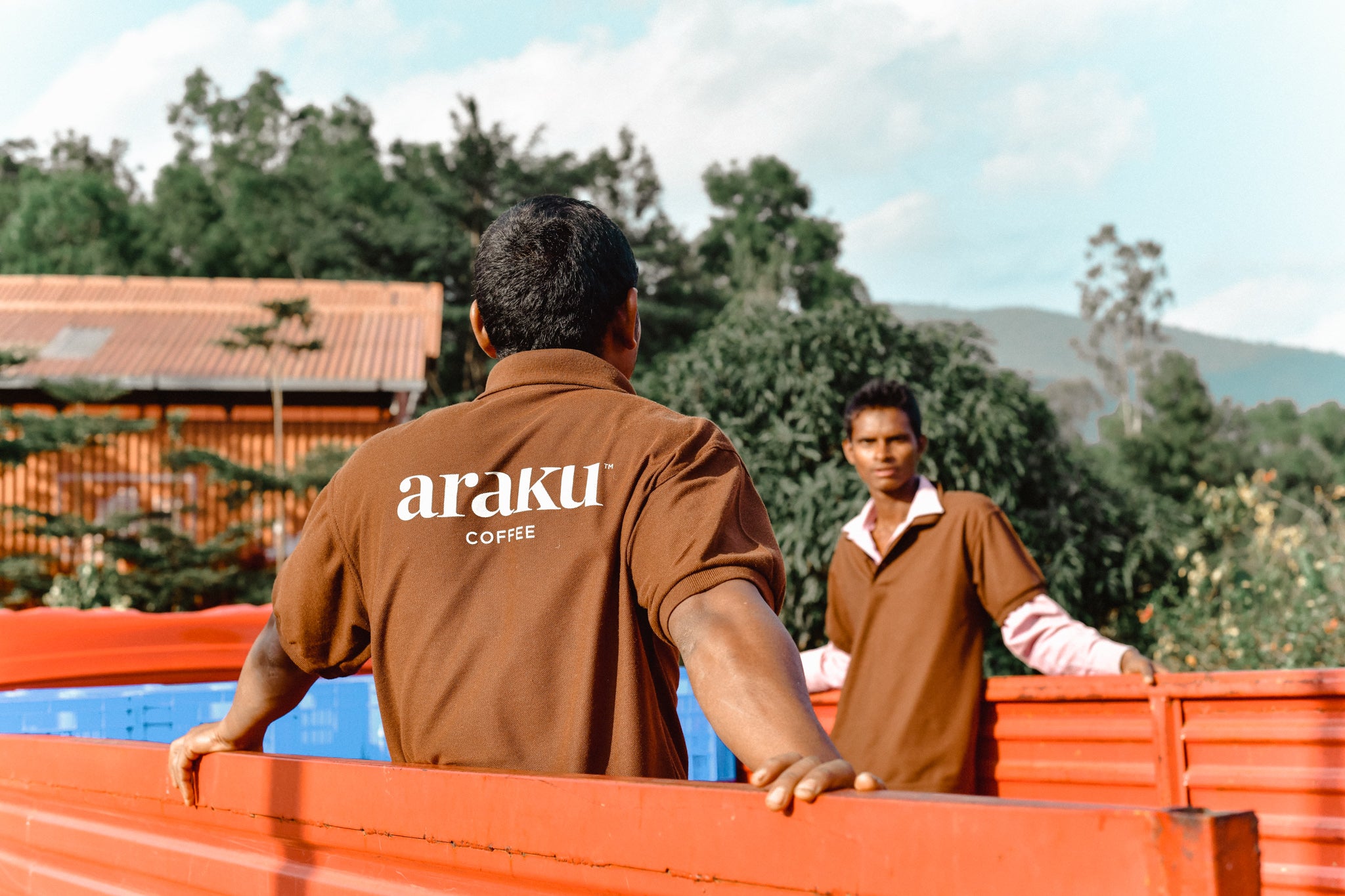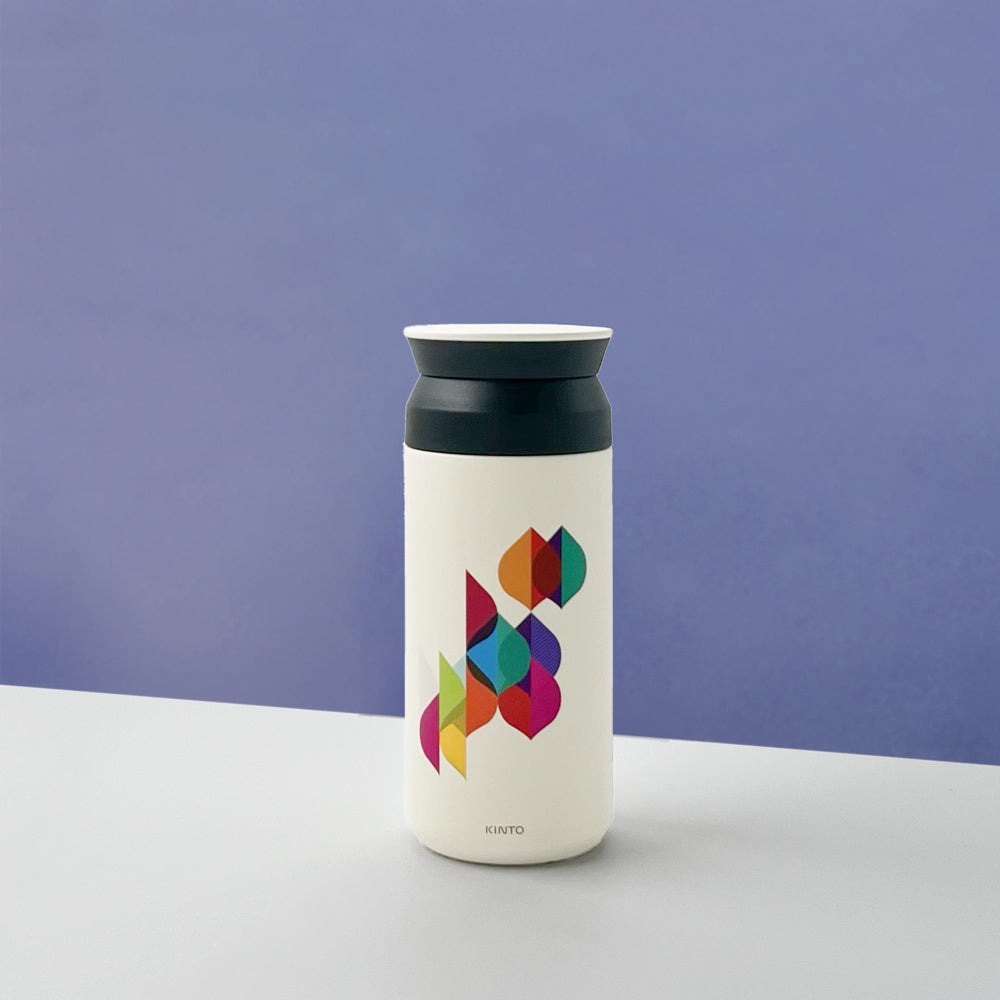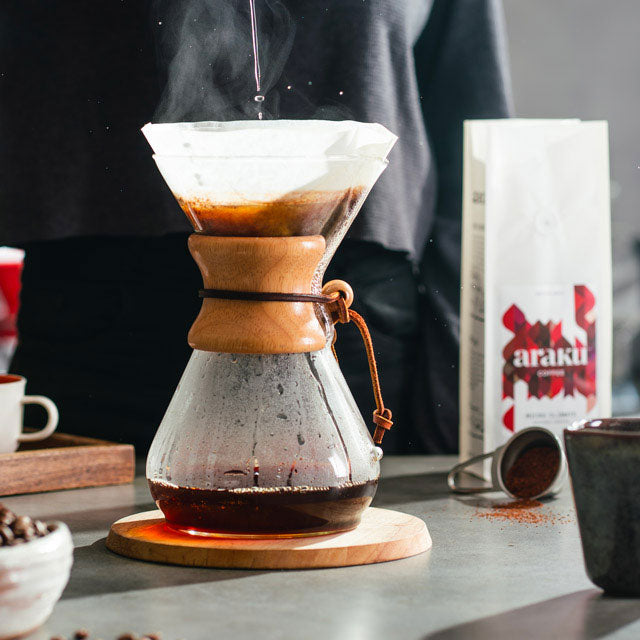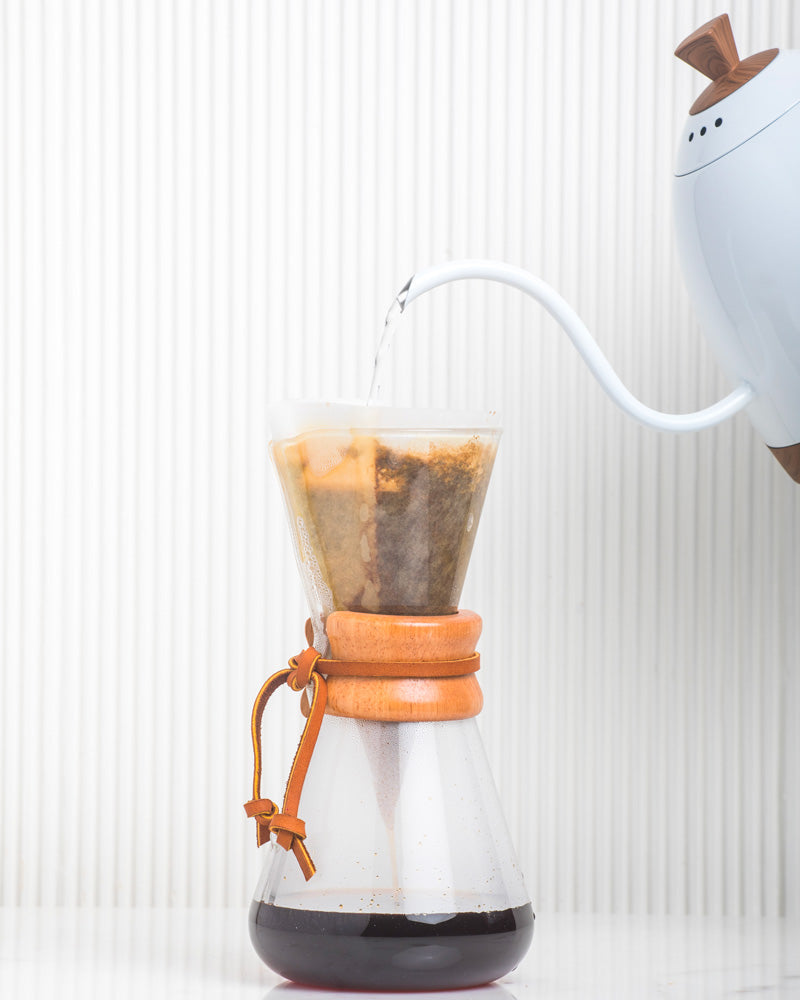
Brewing with a Chemex
Ideal if you like to enjoy a clear cup rich in sweetness and nuances. This Chemex glass filter coffee maker is both easy to use and very beautiful. Today, its hourglass shape and distinctive collar have become iconic in American design history.
Which coffee beans for a Chemex?
The Chemex is one of the slow coffee brewing methods. Here, we don't rush things; we let the aromas develop over time. We recommend a specialty coffee with a light or medium roast. Araku Grande Réserve and Haute Altitude coffees are perfectly suited for this method.
which grind size should I use for a Chemex?
When using a Chemex, it is recommended to use a medium grind, similar to cane sugar. A grind that is too fine may clog the paper filter, while a grind that is too coarse can result in a coffee lacking flavor. If you are accustomed to preparing other gentle brewing methods, the grind size should be coarser than for a V60. This is due to the Chemex paper filter, which is significantly thicker than those used in other gentle brewing methods.
How much coffee should I use for a Chemex?
To brew with a Chemex, we recommend starting with a ratio of 60 to 70g of ground coffee per liter of water. To prepare 500ml of coffee in a 6-cup Chemex, you will need about 35g of ground coffee. You can, of course, adjust the amount of ground coffee according to the more or less intense profile you are seeking.
What do I need to brew a good Chemex?
To prepare a Chemex, you'll need appropriate paper filters. A 3 cup Chemex for and a 6/8 cup Chemex use different paper filters! Make sure to check that you're purchasing the correct size for your Chemex model. You can also get a permanent stainless steel Chemex filter. If you do, consider grinding slightly coarser than for paper filters. Fine particles could pass through the metal filter holes and end up in your cup. Another essential element for preparing a good Chemex is a scale with a timer. This method requires multiple water pours at regular intervals. The Timemore Black Mirror scale is recommended by our baristas.
For water temperature, we recommend 91°C. Water that is too hot risks burning the coffee, while water that is too cold doesn't extract the flavors properly. Water should be poured in circular motions to ensure even extraction. To facilitate extraction and pouring, we recommend using an adjustable temperature gooseneck kettle, such as the Fish Smart by Timemore.
Recipe
This recipe is for 500ml in a 6-cup Chemex, using 35g of ground coffee.
- Start by placing the Chemex on the scale.
- Insert the paper filter and rinse it. This step removes the paper taste from the filter. Remember to discard the rinsing water.
- Add the ground coffee and tare the scale.
- The first step is the "bloom". This essential step releases gases trapped in the beans during roasting and ensures even extraction. Start the timer on the scale and pour approximately 3 times the weight of the ground coffee in water. For example, if you used 35g of ground coffee, pour 100g of water. Ensure all the coffee is thoroughly wetted, and gently agitate the Chemex if necessary.
- Wait for 1 minute, then pour slowly in circular motions until you reach a total of 300g of water. If your "bloom" was 100g of water, pour an additional 200g of water.
- Wait another 1 minute, then pour the remaining 200g of water slowly and in circular motions to reach a total of 500g of water.
- Wait for all the water to drip through, then you can enjoy your coffee! Overall, the extraction process should take between 4 and 5 minutes.
The result is not to my liking, what can I do?
If your coffee is too bitter , your coffee is probably over-extracted! Consider increasing the grind size and lowering the water temperature. Using specialty coffee beans with a lighter roast is also key to achieving less bitterness in the cup.
If your coffee is too tart or weak , then your coffee is probably under-extracted! Consider reducing the grind size, increasing the water temperature and increasing the dose of ground coffee.
Some coffees are naturally rather tart or fruity. If these profiles are not to your taste, do not hesitate to take our online quiz to guide you towards a specialty coffee that will suit you better.
For more advice, do not hesitate to come and see us directly! Our baristas will be delighted to welcome you and guide you on the preparation of our exceptional coffees.

